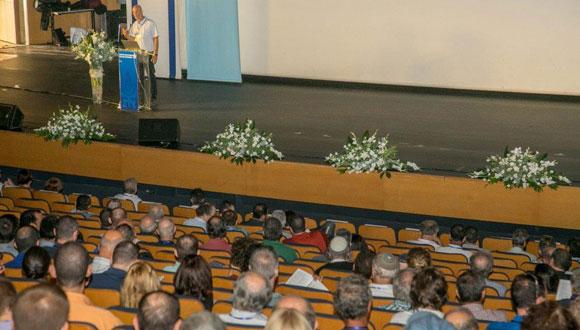Physics Colloquium: Superconducting circuits – wiring it up
Prof. Nadav Katz, Hebrew University
Abstract:
Superconducting circuits are at the forefront of quantum simulation and computation implementations. The critical aspect is to successfully couple larger circuits and scale to complex geometries and control while maintaining coherent properties of individual components. I will review the current status of the field and discuss our work in the context of both material science improvements and that of control of such a multi-state/device system.
Atomic sized two-level systems (TLSs) in dielectrics are known as a major source of loss in superconducting devices. However, the induced frequency shifts on the devices, even by far off-resonance TLSs, is often suppressed by symmetry when standard single-tone spectroscopy is used. We introduce a two-tone spectroscopy on the normal modes of a pair of coupled superconducting coplanar waveguide resonators to uncover this effect by asymmetric saturation. Together with an appropriate generalized saturation model this enables us to extract the single-photon Rabi frequency of dominant TLSs . At high photon numbers we observe an enhanced sensitivity to nonlinear kinetic inductance when using the two-tone method and estimate the value of the Kerr coefficient as K/2π≈−1×10−4 Hz/photon. Furthermore, the life-time of each resonance can be controlled (increased) by pumping of the other mode.
In another project, we propose a method for simulating the first-quantized Dirac equation with a multi-level superconducting Josephson circuit. Resonant drives determine the particle mass and momentum and the quantum state is mapped to the internal spinor dynamics and cast in the language of multi-level quantum optics. The degeneracy of the Dirac spectrum corresponds to a degeneracy of bright/dark states within the system and particle spin and helicity are employed to interpret the multi-level dynamics. By introducing an analogous electric field, we simulate the Schwinger mechanism of electron-positron pair production interpreted also as a doubly degenerate Landau-Zener problem.
Event Organizer: Prof. Alexander Palevsky


